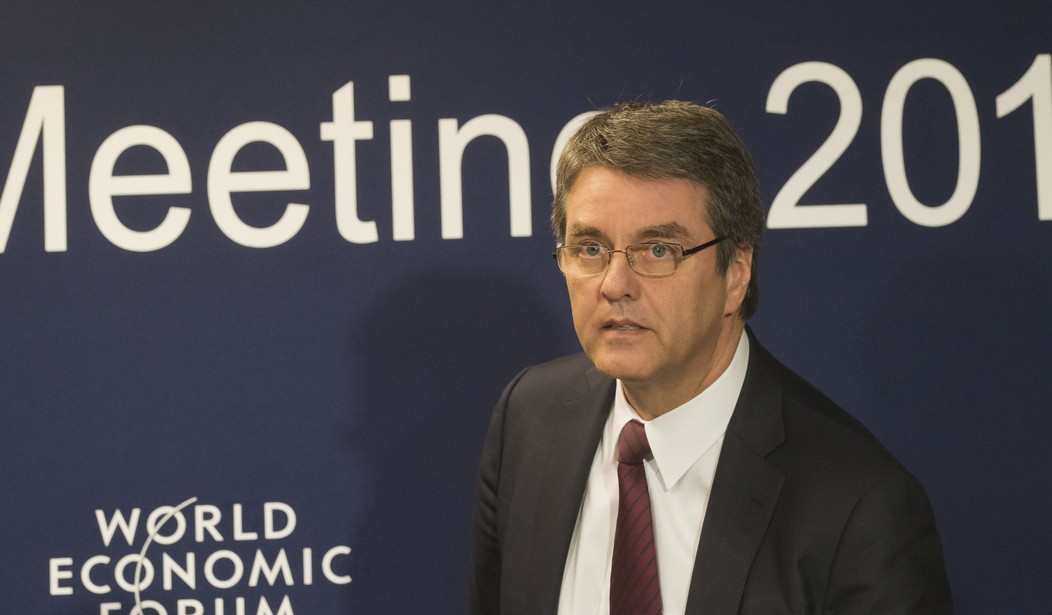WASHINGTON – The Trump administration’s “America First” approach to international trade should not be cast off simply as a publicity stunt, World Trade Organization Director-General Roberto Azevêdo said Monday, while adding that American leadership has been noticeably scaled back in recent months.
The Trump administration in February signaled that it would ignore any WTO directives that the president believes weaken U.S. sovereignty. In a 336-page report to Congress, the White House promised “a more aggressive approach.”
“The Trump Administration will use all possible leverage to encourage other countries to give U.S. producers fair, reciprocal access to their markets,” the document reads.
The WTO is a 164-member international trade regulator, which governs trade framework between member states.
President Trump during his campaign and since taking office has vowed to re-work international trade deals so that they are more favorable to U.S. interests, with a particular focus on the North American Free Trade Agreement, which the U.S., Canada and Mexico are currently renegotiating.
“I don’t believe in rhetoric happening in abstract,” Azevêdo, who is from Brazil, said at the Council on Foreign Relations on Monday. “If the rhetoric is there, it’s because of some political pressure behind it. Whether that translates into action, that’s a different conversation, but clearly there are tensions. Clearly there are forces behind that rhetoric.”
He cautioned that the international community needs to be “watchful and careful” and ensure that collaborative efforts on multilateral trade continue. He noted that at the WTO Public Forum in Geneva this past September, the U.S. was more “subdued” in its participation.
Even without the U.S. taking a major leadership role, he said that members continued to push proposals. He noted that there were seven or eight proposals floated on e-commerce, an area that has been hotly discussed in the NAFTA renegotiation.
“Of course, the absence of the United States as a leading force is felt,” Azevêdo said. “I’m not saying that it doesn’t matter. It does matter a big deal that the U.S. is not one of the driving forces.”
Azevêdo also addressed the ongoing recovery from the 2008 economic crisis and the role that he believes WTO must play. He noted that last month the organization issued an adjusted forecast for trade growth in 2017, now projecting a 3.6 percent increase in terms of volume. That represents a significant improvement from 2016, which saw a 1.3 percent increase.
Azevêdo said that 2017 represents the first time since 2011 that the WTO is expecting to see trade expansion above 3 percent. He cautioned, however, that “growth alone is not enough.” He explained that many populations remain disconnected from the economic progress that groups and markets are reporting.
On NAFTA, Azevêdo said that he hopes the trilateral agreement will not be disassembled, given the fact that regional agreements serve as the framework for WTO directives. On the whole, he said that regional agreements like NAFTA are positive. Regional deals make the groundbreaking work amongst themselves, he said, and the positive aspects from those deals are integrated into the multilateral system. He said his major concern with NAFTA talks is that it could inspire the notion that regional agreements have not had a positive impact.
He also discussed the evolution of China as a central figure in international trade, which he said did not begin until 2008. Today, he said it’s impossible to weigh WTO trade negotiations without China as a central participant.
“China has been using the system to its benefit like everyone else,” he said.









Join the conversation as a VIP Member